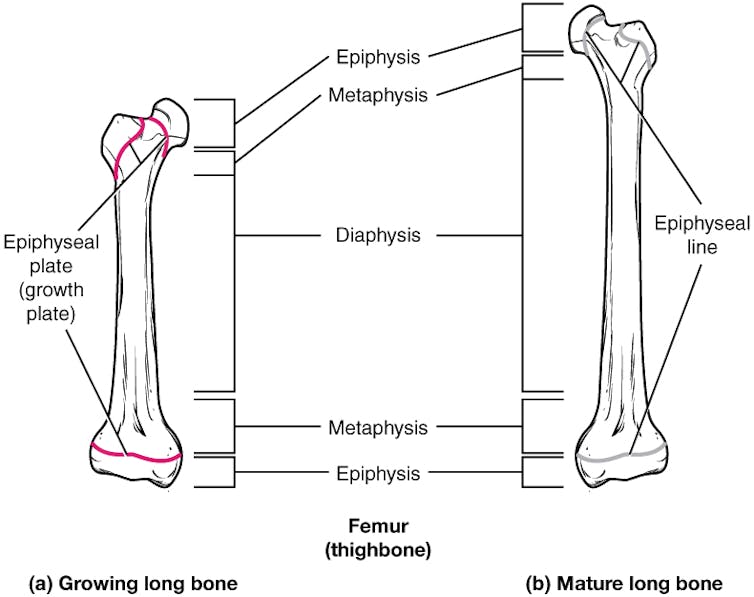Emeritus Professor of Biological Anthropology Barry Bogin provides an answer as part of The Conversation's Curious Kids series, which gives children the chance to have their questions about the world answered by experts.
Here's what he had to say...

Some parts of grownups do not grow. Some parts do grow. And some parts seem to grow but really do not, writes Professor Bogin.
Grownups cannot get taller. The bones of their arms, legs, chest and neck lose the ability to get longer. This is because these bones grow at their ends and these growing ends eventually join together which stops growth in height.
Your thigh bone (properly called the femur), for example, has growing ends near your hip and your knee. You can see these growing ends, called an epiphysis (pronounced eh-pif-uh-sis), as the red lines in the picture of the growing femur here. The bone grows longer by adding new cells in the red spaces.
You stop growing when these red spaces close or run out of new cells. The picture of the mature femur shows that the epiphyses have closed and growth is finished. This happens to girls when they are about 16 to 18 years old and happens to boys when they are about 18 to 22 years old.

Epiphyseal Plate Line. OpenStax College, CC BY.
Grownups cannot get taller, but they do get shorter. After age 30, people start to become a little bit shorter. They lose about two and a half centimetres of height by the age of 55 years. They get shorter because the connections between bones, called cartilage, get squished together.
This happens even to kids. Measure your height when you get out of bed in the morning and then again before you go to bed that night. You will be a little bit shorter because during the day your cartilage was squished. When you sleep, the cartilage expands, and you are taller again in the morning.
Professor Bogin also discusses muscles, ears, noses and hands in the article. Read it in its entirety here.

